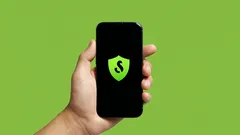229
6
3 minutes
Suggested Articles

Hundreds of Malicious Apps Lurk on Google Play—How to Protect Your Data
Discover the hidden dangers lurking in mobile apps on Google Play, with insights on how to protect yourself from malicious software. Learn key facts, recent findings, and steps to keep your devices and data safe.

5 Hidden Signs Your WhatsApp Is Being Watched and How to Stop It Now
Online Safety & Privacy

Unlock the hidden phone setting that protects your bank account from scammers
Online Safety & Privacy

Protect your money from phone scams with these expert-approved tips
Online Safety & Privacy

Former Hacker Reveals Secrets to Outsmart Cybercriminals and Protect Your Money
Online Safety & Privacy

The magic phrase that instantly boosts your email security and stops scammers
Online Safety & Privacy

How Fake Tech Support Scams Trick You and Simple Ways to Stay Safe Online
Online Safety & Privacy

Hacker exposed after spying on families through parental control apps
Online Safety & Privacy

Invisible interface hack puts millions of Android phones at risk
Online Safety & Privacy

After Google’s massive fine, Android users rush to iPhone for privacy
Online Safety & Privacy

Playing video games together strengthens relationships and sparks real connection
AI & Everyday Tech

US crypto pioneers transform bold risk into life-changing fortunes
AI & Everyday Tech

Tech leaders embrace waste-to-carbon solutions as Microsoft bets big on green AI
AI & Everyday Tech

Travelers and campers embrace portable backpack laundry tech for freedom and clean clothes anywhere
Gadgets & Reviews

Sleep experts champion a smart anti-snoring belt for restful nights and healthier mornings
Gadgets & Reviews

Drivers use Google Maps and Waze to avoid fines but risk safety trade-offs
AI & Everyday Tech

App lovers seize this week’s best free premium downloads before time runs out
Smartphones & Apps
 W3 CodeCraft
W3 CodeCraft

Comments